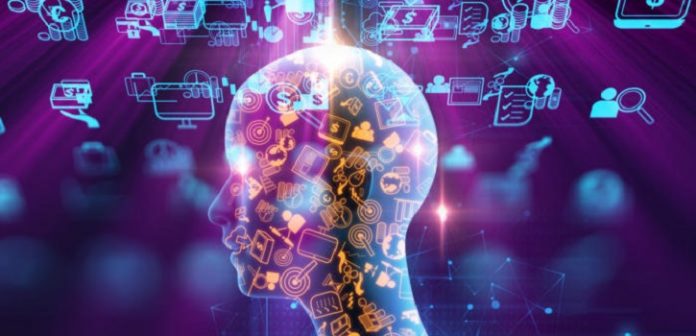AI or artificial intelligence has been a topic of interest of many people of late. Every so often, you will see a lot of information and misinformation about AI. However, what is undeniable is the impact AI has had on the world.
The Internet of Things (IoT) describes a system characterized by computing devices with sensors. The Internet’s infrastructure connects them. The application of artificial intelligence to the Internet of Things has enabled the optimization of the processes. The interconnection of devices has brought new insight and created new services. This, in turn, has increased customer relationships.
AI and the IoT have different backgrounds. However, they were both developed with the aim of transforming current systems. The purpose of the IoT was to automate and enhance current infrastructure and processes and increase efficiency and productivity. The goal of the initial AI applications was to improve the existing human-centered processes. Currently, the world is moving toward the integration of AI and the IoT.
The Integration of AI and the IoT
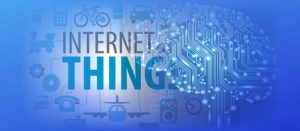
Bringing together AI and the IoT has led to the development of new solutions that have disrupted the current norms. This integration has paved the way for the development of new business models, roles, and value propositions.
Some of the developments that have come through the integration of AI and the IoT include:
- New disruptive automation of various sectors of the economy, including manufacturing, warehousing, retail, accommodation, etc. This new automation has created the need for a new skill set within these industries.
- This integration has driven industries to change their business models from being product-oriented to being service-oriented. The IoT offers data that businesses can use to make informed trade-offs. AI offers the intelligence needed in the process.
3. This integration has created new value propositions that have completely transformed systems. One example is the SLAM application used by drones. This application allows drones to literally understand the terrain over which they fly.
While the evolution of business is the driving force behind the IoT, the need for technological evolution was behind AI. With the development of powerful hardware, however, AI has been more driven by business. This recent importance of AI to business has been associated with the increase of real-time data from IoT systems. The maturity of use cases will see AI implementation become as decentralized as IoT systems. AI application into IoT systems has the potential of propelling the world into the future that many sci-fi movies have imagined.
For many industries, AI naturally complements the IoT systems. It provides better offerings and makes operations more efficient and smarter. This gives businesses within these industries a competitive edge, and this boosts their performances.
Predictive capabilities applied in machine learning have now been complemented through the integration of IoT platforms. Some of the platforms employing this include IBM Watson IoT and Microsoft Azure IoT. More IoT solutions are utilizing AI technology.
It is sometimes possible to apply AI in IoT systems that were not originally designed to use AI technology applications. Machine learning, which is an AI product, has been used to analyze the streams of data generated by IoT deployments.
Individually, some of the developments experienced in the AI sector include:
An increase in accessibility of AI
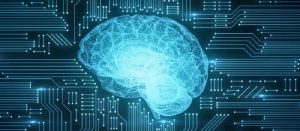
In the past, only big tech companies could access artificial intelligence. These companies were able to employ the best minds in the field and invest a lot of money. This has changed in recent years. AI is currently more accessible and any company can capitalize on it.
AI is becoming more accessible and affordable. This is because of the various open source software that enables the creation of advanced self-learning systems. These are getting better with more data.
China focused on leading in AI development
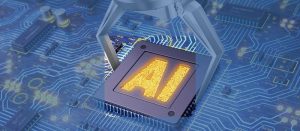
In the past, most of China’s technology entrepreneurs seemed to be duplicating applications that had already been developed in the West. This era seems to have ended, though. China is fast becoming a leader in AI technology and machine learning.
China is allocating more funds toward AI. Last year, the total investment made into the AI sector was $15.2 billion. Forty-eight percent of the money came from China’s investment in the sector. This is 10 percent more than what the United States invested. The Chinese are investing more in AI companies and the government is planning to improve education in the field. The main reason for this is the creation of a stronger pool of AI talent.
Some of the largest companies in China, including Tencent and Didi, are consistently coming up with better developments in AI. This dedication to innovation could see China surpass the U.S. as the leader in AI technology.
AI focusing on automation of routine work
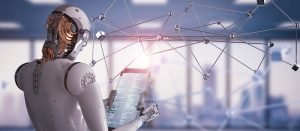
The main point that comes up when discussing AI technology is that it is replacing jobs. It is true that the advancements made in AI technology mean computers can perform routine tasks better than people. This, however, does not mean they will replace human laborers any time soon.
AI experts and specialists have reiterated that AI is not going to replace humans. It is only going to simplify the process. An AI system can retrieve a file for a lawyer faster than a human can. However, it is not going to replace a lawyer in the performance of his or her tasks. While AI mimics human cognitive functions, it works better with a human.
A PwC report has stated that only 3 percent of the available jobs are at risk of automation through AI technology. However, this number is set to increase in the coming years.
Some of the latest developments within the Internet of Things sphere include:
Arm Holdings acquired Treasure Data
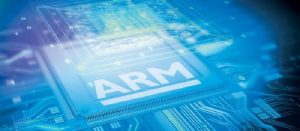
Arm Holdings acquired Treasure Data for the purpose of making its IoT platform stronger. Arm Holdings hopes to achieve this by tapping into Treasure Data’s expertise on data management. Arm Holdings has stated that Treasure Data is an important contributor to the industry. As such, its IoT enablement will allow it to personalize its products and boost the experience. At the same time, the company will gain an edge and device data while using a customer profile that is comprehensive.
Plex accelerating IoT adoption
Plex has purchased DATTUS Inc. for the purpose of accelerating its goal to simplify the cumbersome process of machine connectivity. This deal will enable Plex to amplify its streams of the Plex Manufacturing Cloud. The new streams will include machine data and its underlying intelligence. The Plex Manufacturing Cloud is benefiting from DATTUS’s Industry IoT connectivity (IIoT), IIoT Data Analysis, and IIoT Data Management.
Anurag Garg, the chief executive at DATTUS, said Plex is a perfect fit for his company. He said both companies have the shared goal of transforming manufacturing through the Cloud. He added, going forward, their machine connectivity, analytics, and data management will boost the transformation.
Telefónica launches innovative IoT laboratory
Telefónica has re-established its commitment to creating projects that boost the development of new projects in Mexico. Telefónica has unveiled the THINx laboratory that creates an environment based on the IoT. The open laboratories provide entrepreneurs with the opportunity to utilize an open ecosystem. This ecosystem allows various devices within the network to connect. They allow for the simple and safe management of the devices using IoT connectivity.
Disclaimer: All images are copyright to their respective owners and are used by USA Online Casino for informational purposes only.


